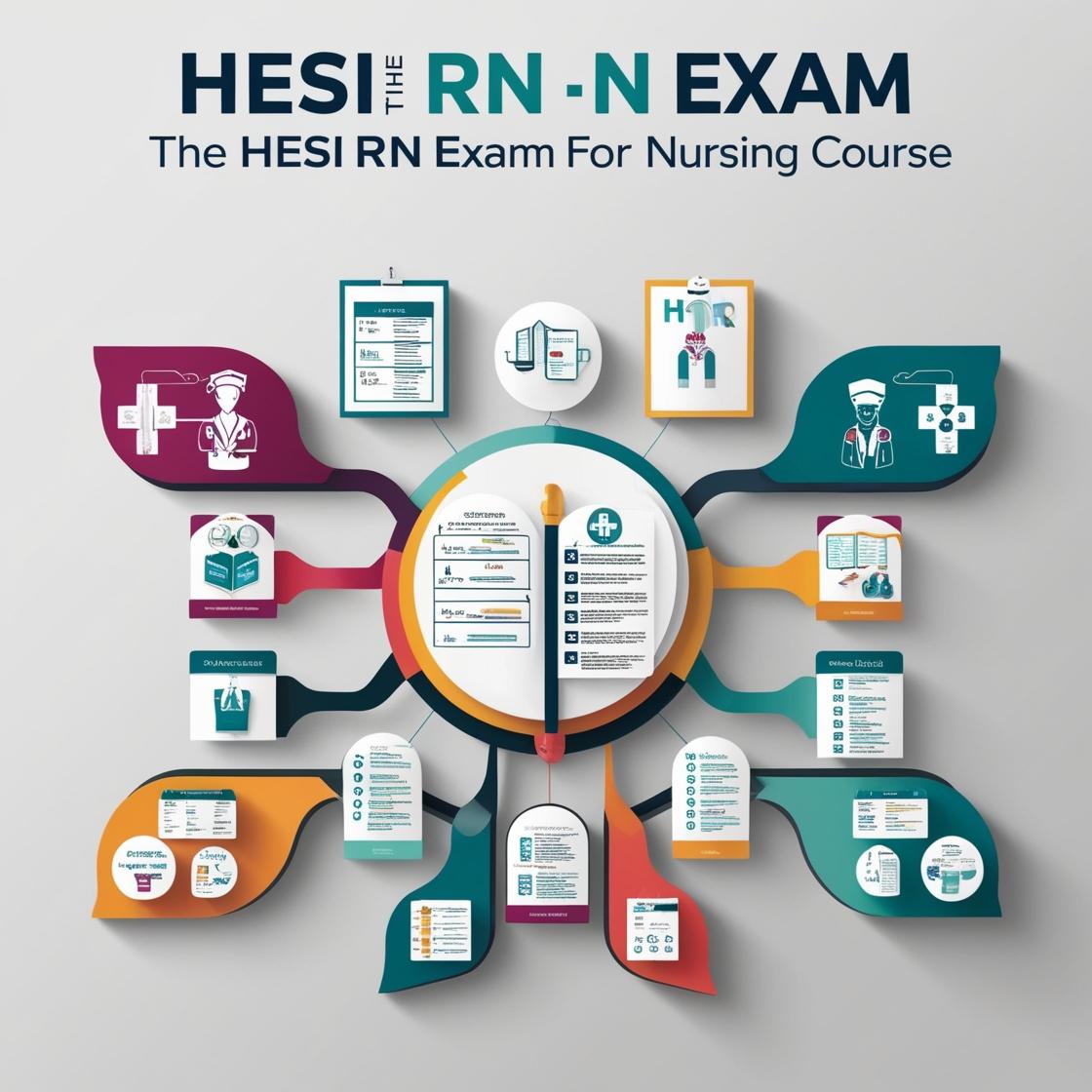HESI RN
HESI RN CAT Exit Exam
1. A 59-year-old male client is brought to the emergency room where he is assessed to have a Glasgow Coma Scale of 3. Based on this assessment, how should the nurse characterize the client's condition?
- A. The client is experiencing increased intracranial pressure
- B. He has a good prognosis for recovery
- C. This client is conscious, but is not oriented to time and place
- D. He is in a coma, and has a very poor prognosis
Correct answer: D
Rationale: A Glasgow Coma Scale of 3 indicates severe neurological impairment, suggesting a deep coma or even impending death. This client's condition is critical, and he has a very poor prognosis. Choice A is incorrect because a GCS of 3 does not directly indicate increased intracranial pressure. Choice B is incorrect as a GCS of 3 signifies a grave neurological status. Choice C is incorrect as a GCS of 3 represents a state of unconsciousness rather than being conscious but disoriented.
2. A college student who is diagnosed with a vaginal infection and vulva irritation describes the vaginal discharge as having a 'cottage cheese' appearance. Which prescription should the nurse implement first?
- A. Cleanse the perineum with warm soapy water 3 times per day
- B. Instill the first dose of nystatin (Mycostatin) vaginally per applicator
- C. Perform a glucose measurement using a capillary blood sample
- D. Obtain a blood specimen for sexually transmitted diseases (STDs)
Correct answer: B
Rationale: The correct answer is to instill the first dose of nystatin vaginally per applicator. Nystatin is an antifungal medication used to treat yeast infections, which are characterized by 'cottage cheese' discharge. Cleansing the perineum with warm soapy water may help with hygiene but does not address the underlying infection. Performing a glucose measurement is not relevant to the diagnosis of a vaginal infection. Obtaining a blood specimen for STDs is not the priority in this scenario as the symptoms described are indicative of a yeast infection.
3. The nurse-manager of a perinatal unit is notified that one client from the medical-surgical unit needs to be transferred to make room for new admissions. Which client should the nurse recommend for transfer to the antepartal unit?
- A. A 45-year-old with chronic hepatitis B.
- B. A 35-year-old with lupus erythematosus
- C. A 19-year-old diagnosed with rubella
- D. A 25-year-old with herpes lesions of the vulva
Correct answer: B
Rationale: The correct answer is B because a client with lupus erythematosus can be safely transferred to the antepartal unit as this condition does not pose a significant risk to other patients or staff. Choices A, C, and D should not be recommended for transfer to the antepartal unit due to the potential risks they may pose to pregnant women and their unborn babies. Chronic hepatitis B, rubella, and herpes lesions of the vulva can be contagious and harmful in the perinatal setting.
4. A male client with diabetes mellitus takes Novolin 70/30 insulin before meals and azithromycin (Zithromax) PO daily, using medication he brought from home. When the nurse delivers his breakfast tray, the client tells the nurse that he took his insulin but forgot to take his daily dose of the Zithromax an hour before breakfast as instructed. What action should the nurse implement?
- A. Offer to obtain a new breakfast tray in an hour so the client can take the Zithromax
- B. Instruct the client to eat his breakfast and take the Zithromax two hours after eating
- C. Tell the client to skip that day's dose and resume taking the Zithromax the next day
- D. Provide a PRN dose of an antacid to take with the Zithromax right after breakfast
Correct answer: B
Rationale: To ensure the effectiveness of the antibiotic and manage blood glucose levels, the client should take the Zithromax two hours after eating. Option A is incorrect because obtaining a new breakfast tray is not necessary to administer the missed dose. Option C is incorrect as skipping a dose can lead to decreased effectiveness of the antibiotic. Option D is incorrect because providing an antacid is not indicated in this situation.
5. Which instruction should the nurse provide to an elderly client who is taking an ACE inhibitor and a calcium channel blocker?
- A. Wear long-sleeved clothing when outdoors
- B. Report the onset of sore throat
- C. Eat plenty of potassium-rich food
- D. Change the position slowly
Correct answer: D
Rationale: The correct instruction for an elderly client taking both an ACE inhibitor and a calcium channel blocker is to change positions slowly. Both medications can lead to orthostatic hypotension, a sudden drop in blood pressure when changing positions, which can increase the risk of falls. Instructing the client to change positions slowly helps prevent falls. Wearing long-sleeved clothing when outdoors does not directly relate to the medication combination. Reporting the onset of a sore throat is important for monitoring potential side effects but is not specific to these medications. While potassium levels should be monitored with ACE inhibitors, eating plenty of potassium-rich foods without guidance can lead to hyperkalemia, a potential side effect of ACE inhibitors.

Access More Features
HESI RN Basic
$69.99/ 30 days
- 50,000 Questions with answers
- All HESI courses Coverage
- 30 days access
HESI RN Premium
$149.99/ 90 days
- 50,000 Questions with answers
- All HESI courses Coverage
- 90 days access
